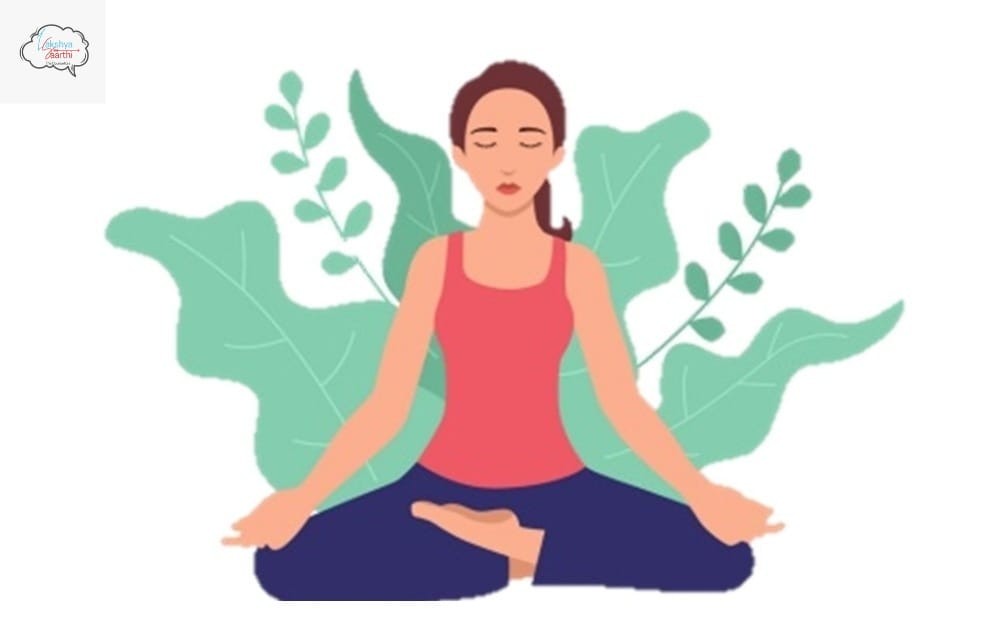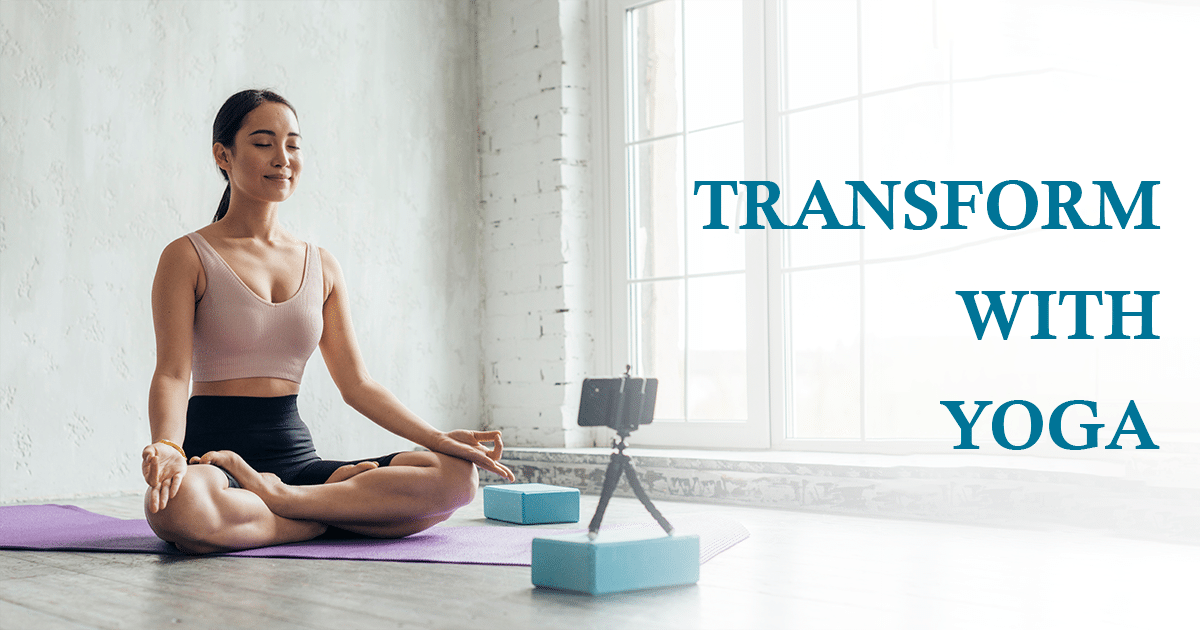Yoga offers numerous mental health and well-being benefits, including stress reduction and improved emotional balance. It can also enhance mindfulness and promote overall mental wellness, making it an effective tool for managing anxiety and depression.
Engaging in regular yoga practice can lead to better mental clarity and a greater sense of calm and relaxation. Yoga has gained significant popularity for its potential to improve mental health and well-being. With its focus on deep breathing, mindfulness, and gentle physical movements, yoga offers a holistic approach to addressing mental health concerns.
Its ability to reduce stress and anxiety, improve mood, and enhance emotional resilience has made it a valuable practice for promoting mental well-being. As more people recognize the positive impact of yoga on mental health, its popularity continues to grow as a complementary approach to traditional mental health care.
The Science Behind Yoga And Mental Health
Yoga has gained recognition as a valuable tool for promoting mental health and well-being. Scientific research has delved into the intricate connection between the practice of yoga and its positive impact on mental health. Understanding the mind-body connection and exploring the specific benefits of yoga for mental health offers fascinating insights into the profound effects of this ancient practice.
Understanding The Mind-body Connection
Yoga fosters a deep connection between the mind and body. Through the practice of various postures, breathing techniques, and meditation, individuals cultivate a heightened awareness of their physical sensations, thoughts, and emotions. This heightened awareness fosters mindfulness, reducing stress and promoting mental clarity.
Exploring The Benefits Of Yoga For Mental Health
- Stress Reduction
- Enhanced Emotional Well-being
- Improved Self-Regulation
- Boosted Mood
“` I hope you find this helpful! Let me know if you need additional assistance.

Credit: www.facebook.com
Yoga Poses And Techniques For Mental Well-being
Yoga offers numerous benefits for mental well-being, providing a holistic approach to achieving emotional balance and clarity of mind. The combination of pranayama, asanas, and meditation in yoga practice can significantly contribute to promoting mental health and overall well-being. Let’s explore these yoga poses and techniques that can enhance mental equilibrium and inner peace.
Pranayama: Harnessing The Breath For Relaxation
Pranayama, the ancient practice of breath control, is a fundamental aspect of yoga that focuses on regulating the breath to calm the mind and reduce stress. By practicing pranayama techniques such as deep breathing, alternate nostril breathing (nadi shodhana), and kapalabhati, individuals can experience a sense of tranquility and relaxation, alleviating anxiety and promoting mental clarity.
Asanas: Physical Poses To Promote Mental Balance
Yoga asanas, or physical postures, are designed to engage the body and mind harmoniously, enhancing mental balance and emotional stability. Incorporating asanas such as the Child’s Pose (Balasana), Warrior II (Virabhadrasana II), and Tree Pose (Vrikshasana) can help release tension, improve focus, and cultivate a sense of inner peace, contributing to overall mental well-being.
Meditation: Cultivating Mindfulness And Present-moment Awareness
Meditation is a powerful mindfulness practice that allows individuals to cultivate present-moment awareness and attain mental clarity. By engaging in mindfulness meditation, loving-kindness meditation (Metta), or body scan meditation, individuals can develop a heightened sense of self-awareness and a deeper connection to the present moment, leading to reduced stress, improved concentration, and enhanced mental well-being.
Yoga As A Tool For Stress Reduction
Yoga serves as a powerful tool for reducing stress and improving mental health and well-being, offering a wide range of benefits for individuals seeking stress relief. Through its combination of physical postures, breathing exercises, and meditation, yoga provides a holistic approach to managing and reducing stress levels in a natural and effective manner.
Understanding The Impact Of Stress On Mental Health
Did you know that stress can have a profound impact on your mental health? From increased anxiety and depression to difficulty in focusing and making decisions, stress can wreak havoc on your overall well-being. It is crucial to understand the detrimental effects of stress in order to find effective ways to manage it. Stress triggers the release of cortisol, a hormone that can lead to feelings of irritability, restlessness, and mood swings. Over time, chronic stress can take a toll on your mental health, making it important to find healthy ways to cope and reduce stress levels.
How Yoga Can Help Manage And Reduce Stress Levels
Yoga, an ancient practice that combines physical movements, breathing exercises, and meditation, has emerged as a powerful tool in managing and reducing stress. Its holistic approach can help soothe your mind and calm your nervous system, allowing you to find balance amidst the chaos of daily life. Practicing yoga regularly can help release tension and relieve both physical and mental stress. It encourages you to focus on your breath, enabling you to become more present and mindful in the moment. As you flow through different yoga postures, you engage in a mind-body connection that promotes relaxation and eases anxiety. In addition, yoga stimulates the production of serotonin and endorphins, often referred to as the “feel-good” hormones. These chemicals play a key role in boosting your mood and encouraging a sense of well-being. By incorporating yoga into your routine, you can create a positive impact on your mental health and overall quality of life.
Using Yoga As A Tool To Reduce Stress
So, how exactly can you use yoga as a tool to manage and reduce stress? Here are a few practical steps you can take: 1. Start by incorporating simple yoga poses into your daily routine, such as child’s pose, downward dog, or seated forward bend. These poses are great for releasing tension and calming your mind. 2. Practice deep breathing exercises, such as the 4-7-8 technique, where you inhale for a count of 4, hold for a count of 7, and exhale for a count of 8. Deep breathing helps activate your parasympathetic nervous system, promoting a state of relaxation. 3. Consider joining a yoga class or watching online tutorials to learn proper techniques and form. A qualified instructor can guide you through various sequences and provide personalized feedback to help you optimize your practice. 4. Carve out dedicated time for yoga each day, even if it’s just 10 minutes. Consistency is key in reaping the long-term benefits of yoga for stress reduction. Remember, yoga is a journey of self-discovery and self-care. Embrace the process, be patient with yourself, and allow your practice to be a sanctuary where you can find solace and peace amidst life’s challenges. Now that you understand the impact of stress on mental health and how yoga can be a powerful tool in managing and reducing stress levels, it’s time to incorporate this ancient practice into your daily routine. Take a step towards a healthier mind and embrace the transformative benefits of yoga for your mental well-being.
Yoga For Specific Mental Health Conditions
Yoga has been recognized as a powerful tool for promoting mental health and well-being, providing a holistic approach to improving various mental health conditions. Whether you struggle with anxiety, depression, post-traumatic stress disorder (PTSD), or sleep issues like insomnia, incorporating yoga into your routine can have profound benefits on your mental and emotional well-being. In this article, we explore the specific mental health conditions that can be alleviated through the practice of yoga.
Yoga For Anxiety And Depression
When it comes to anxiety and depression, yoga has proven to be highly effective in reducing symptoms and promoting a sense of calm and tranquility. The combination of gentle physical movements, breathwork, and mindfulness exercises helps to regulate the stress response system, allowing individuals to manage and alleviate feelings of anxiety and depression more effectively.
Regular practice of yoga has been shown to increase the production of feel-good chemicals in the brain, such as serotonin and endorphins, which contribute to improved mood and overall well-being. By engaging in yoga poses that open the chest and heart, individuals can release tension and cultivate a sense of self-compassion and acceptance.
Yoga For Post-traumatic Stress Disorder (ptsd)
For individuals struggling with post-traumatic stress disorder (PTSD), yoga offers a safe and empowering practice to heal from trauma and regain a sense of control over their bodies and minds. The combination of physical postures, breathwork, and meditation helps to release stored trauma and tension in the body, promoting a sense of grounding and stability.
Yoga provides a supportive environment for individuals with PTSD to reconnect with their physical sensations and gain a sense of mastery. By actively engaging in the present moment through conscious movement and breath, individuals with PTSD can learn to regulate their nervous system and reduce the intensity of flashbacks, nightmares, and hypervigilance.
Yoga For Improving Sleep And Insomnia
Quality sleep is essential for mental and emotional well-being. Unfortunately, many individuals struggle with sleep issues like insomnia, which can have a detrimental impact on their overall health. Fortunately, yoga offers a natural and effective solution for improving sleep and overcoming insomnia.
By incorporating gentle stretching, relaxation techniques, and meditation into a bedtime routine, individuals can create a calming environment that promotes deep relaxation and prepares the body and mind for restful sleep. Yoga helps to reduce stress and anxiety, quiet the mind, and release physical tension, allowing individuals to experience a more peaceful and rejuvenating night’s sleep.
Incorporating Yoga Into Your Mental Health Routine
Discover the benefits of incorporating yoga into your mental health routine. Yoga offers a holistic approach to well-being, helping to manage stress and anxiety, improve mood, and increase mindfulness. By integrating yoga into your daily routine, you can experience a positive impact on your mental health and overall wellness.
Finding The Right Yoga Practice For You |
When incorporating yoga into your mental health routine, it’s essential to find the right practice that suits your needs. Yoga offers various styles and approaches, so take the time to explore and experiment to determine what works best for you. Some people may prefer a more gentle and meditative practice, such as Hatha or Yin yoga, while others may benefit from a more dynamic and physically challenging practice, like Vinyasa or Ashtanga yoga.
Experimenting with different yoga styles allows you to discover what resonates with you and aligns with your mental health goals. If you’re new to yoga, consider starting with beginner-friendly classes or guided online sessions. Remember, yoga is a personal journey, and finding the right practice for your mental well-being may take some time and exploration.
Making Yoga A Regular Part Of Your Self-care |
Once you’ve identified the yoga practice that suits you, it’s important to make it a regular part of your self-care routine. Consistency is key when it comes to reaping the mental health benefits of yoga. Aim to practice yoga at least a few times a week, even if it’s just for a short duration. By making it a regular habit, you’ll allow your mind and body to experience the cumulative effects of the practice.
To make yoga a regular part of your self-care, you can designate specific times in your schedule for practice, create a dedicated space for your yoga sessions, or even use mobile apps or online platforms that offer guided classes. Remember, self-care isn’t selfish, and prioritizing your mental well-being through yoga is an act of self-love and nurturing.
Tips For Creating A Safe And Supportive Yoga Environment |
Creating a safe and supportive environment for your yoga practice is crucial for promoting mental well-being. Here are some tips to help you establish an environment conducive to your practice:
- Choose a quiet and clutter-free space where you can practice without distractions.
- Use a yoga mat or a non-slip surface to ensure stability during poses.
- Have props such as blankets, blocks, or straps to support your body and enhance your practice.
- Set the lighting to a comfortable level, whether you prefer natural light or a dimmed ambiance.
- Play soothing music or nature sounds during your practice to create a calming atmosphere.
By creating a safe and supportive environment, you can fully immerse yourself in your yoga practice, allowing you to reap the maximum mental health benefits.

Credit: www.linkedin.com

Credit: www.amazon.com
Frequently Asked Questions For Yoga For Mental Health And Well-being Benefits
What Is The Benefit Of Yoga On Mental Health?
Yoga benefits mental health by reducing stress, anxiety, and depression. It promotes relaxation and mindfulness, improving overall well-being.
How Yoga Is Beneficial For Health And Mind?
Yoga benefits both the body and mind by improving flexibility, strength, and balance. It reduces stress, promotes relaxation, and enhances mental clarity. Practicing yoga can also improve sleep quality, boost immune function, and increase overall well-being.
Which Yoga Is Best For Mental Health?
Yoga for mental health is best served by practicing mindfulness-based yoga, including Hatha yoga and Kundalini. These practices incorporate breathing exercises, meditation, and gentle physical movements to help reduce stress and anxiety.
What Is The Role Of Yoga In Maintaining Mental Stress?
Yoga helps to reduce mental stress by calming the mind and promoting relaxation. Through deep breathing and gentle movements, yoga enhances mindfulness and releases tension within the body. Regular practice of yoga can improve mood, reduce anxiety, and enhance overall mental well-being.
Conclusion
Yoga offers numerous mental health benefits, promoting overall well-being and serving as a natural therapeutic approach. Through its combination of physical poses, controlled breathing, and mindfulness, yoga cultivates a sense of peace and calm within the mind. It reduces stress, anxiety, and depression while enhancing focus, clarity, and emotional stability.
Incorporating yoga into your daily routine can positively impact your mental health and contribute to a balanced and holistic lifestyle. So, why wait? Start reaping the mental health benefits of yoga today!



